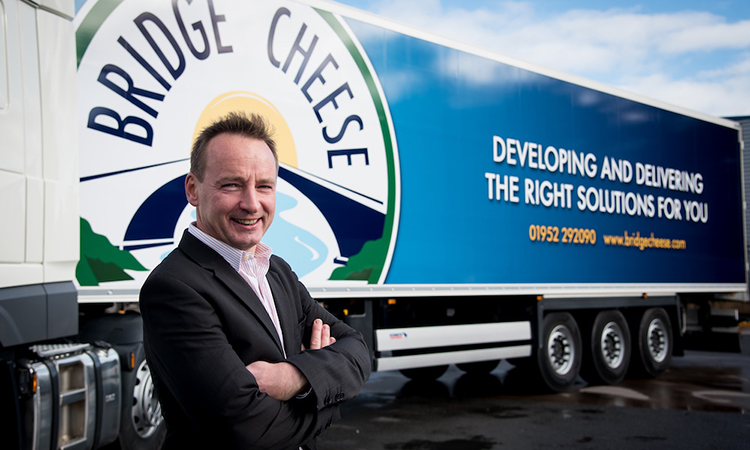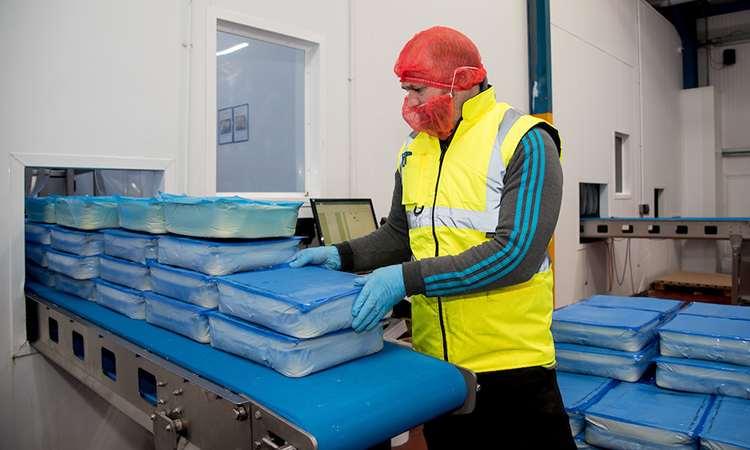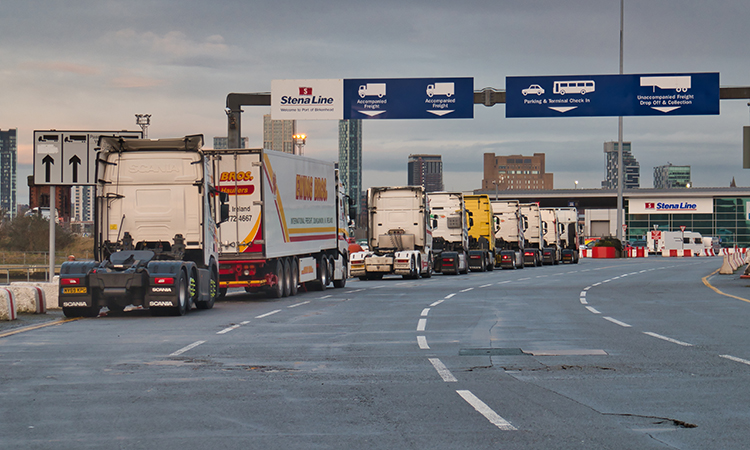The Brexit issues leaving a bitter taste
- Like
- Digg
- Del
- Tumblr
- VKontakte
- Buffer
- Love This
- Odnoklassniki
- Meneame
- Blogger
- Amazon
- Yahoo Mail
- Gmail
- AOL
- Newsvine
- HackerNews
- Evernote
- MySpace
- Mail.ru
- Viadeo
- Line
- Comments
- Yummly
- SMS
- Viber
- Telegram
- Subscribe
- Skype
- Facebook Messenger
- Kakao
- LiveJournal
- Yammer
- Edgar
- Fintel
- Mix
- Instapaper
- Copy Link
Posted: 17 March 2021 | Michael Harte | No comments yet
Bridge Cheese founder Michael Harte shares his experiences of importing and exporting goods under the new EU trade agreement and looks at how the industry is having to adapt to the changing rules and regulations.


Michael Harte explains why more support is needed for smaller companies to deal with Brexit regulations
Bridge Cheese is a Telford-based company supplying cheese to the food manufacturing and foodservice sectors. We export to many countries in the EU and the rest of the world, and as such, the free movement of products in and out of the UK is central to our operations.
Like many, we welcomed the news that broke on Christmas Eve that the Government had managed to strike a deal with the EU over food import/exports. However, the fact that it was officially announced when most businesses were breaking up for the holidays, meant we had no time to digest or raise questions about the new rules before they became law on 1 January.
We had already spent months preparing for the unknown – readying ourselves for every possible outcome – but since the turn of the year, imports and exports have been anything but smooth. In the first few weeks of 2021, the new rules caused chaos and confusion for many businesses, especially those moving food products with a short shelf life.
We heard stories of cheese products arriving back at the depot, having been turned back at the border because of confusion over the new rules. The same issues were widely reported for the UK’s fishing industry, highlighting the fact that food supply chain problems were being felt across the board.
It seems that many British food companies had prepared for the end of the transition period, the introduction of a last-minute deal and the lack of support or guidance from the Government inevitably had an impact, with the disruption to the supply chain hitting small and medium sized businesses hardest of all.
We were fortunate at Bridge Cheese; we anticipated that routes in and out of the country would be facing disruption in January and had taken steps to ensure the security of supply for our customers. This meant our customer service and logistics teams had time to adapt our company processes to comply with the new EU rules at the turn of the year, without letting our existing clients down.
But we know that not everyone has, or can be as flexible and agile in their approach. Businesses will go under unless support is made available.


Bridge Cheese has been able to adapt to the challenges Brexit has brought
Smaller companies left counting the cost
Yes, we are all having to navigate the new processes and procedures – regardless of the size of our operations – but having the resources and resilience to cope with the changes definitely makes a difference, as does the ability to export larger volumes of product.
Currently, we all need to fill in the same amount of paperwork (at the same cost) for shipping a whole container of cheese as we do for a small pallet. The lengthy paperwork process includes going through the Chamber of Commerce to obtain a certificate of origin and commissioning vet checks in order to complete an export health certificate (EHC).
At Bridge Cheese, we are working to streamline the paperwork process wherever we can to minimise the time between a customer placing an order and receiving their delivery – but it’s an arduous process to manage. As it stands, companies have to call a vet out to check every single shipment, despite them often being the same products, as the same paperwork must be completed for each shipment.
It’s just not a sustainable or efficient way of doing business for smaller companies.
Couple the new export expenses with rising logistics costs and it’s clear that the EU trading rules are squeezing already low margins, particularly for smaller food companies, who find it difficult to pass costs onto the consumer while remaining competitive.
Now we know the true post-EU shipping and logistic costs, Bridge Cheese has been looking at ways to create value in other areas of our supply chain to minimise the import/export costs impacting our customers. For example, working with new suppliers and looking at new product developments which can optimise our customers’ profit margins. This is our new reality and we have to adapt to it.
New challenges ahead
I recently read a report from the Agriculture and Horticulture Development Board (AHDB) which warned that increased friction at the border would lead to delays and rising prices. That may be the tip of the iceberg.
If the border issues arising go unchecked, Britain’s food industry could be potentially facing food cost inflation, product shortages, less choice for consumers and a stagnation in new product development. The sector could also be looking at millions and millions of pounds worth of produce being wasted, with UK businesses left counting the cost.
There may also be more headaches to come this year for food export/import businesses. On 1 April 2021, the EU will conclude its grace period for Member States and border checks will commence on all products coming into the UK from Europe. Will the empty shelves seen in Northern Ireland’s shops be indicative of what is to come for the rest of Britain?


Companies trading in goods with a short shelf life, such as seafood, have found delays at the border difficult to manage
If European businesses – particularly those in the food sector – experience the same issues that our industry has had on this side of the channel, there would be a clear case for both parties to review the current trading rules and return to the negotiation table to establish a fairer system that works for all.
In our opinion, a good start would be to shift the export approvals system to an annual certification, which can then be policed throughout the 12 months with spot checks to ensure ongoing compliance.
With more disruption on the horizon come the spring, we are busy planning again for the ‘worst case scenario’. We are strengthening our UK supply chain and investing in stock holding to ensure we are not reliant on our imports getting through. Our priority remains our customers and the security of supply; even if this means turning away new business to retain the loyalty and trust of our existing clients.
Time to move forwards
The time for arguing over whether or not we should have left the EU is behind us and we need to move forward and play the hand we have been dealt. We must adapt to the new reality as best we can and find ways to thrive in the conditions.
I believe we are at the lowest ebb of the process and that things will get better with more guidance. I’d really like to see – and believe there is an appetite for – a thorough and comprehensive review of what is working and what is not for all British businesses, particularly the small and medium sized companies which are the backbone of the country’s economy.
In the meantime, we need to keep moving forward; once again preparing for the worst to protect our customers’ interests, while optimistically hoping for the best.
About the author
Michael Harte graduated with a BSc degree in Food Business from University College Cork and started his career in production before moving into purchasing, ERP implementations, supply chain, sales and managing director roles.
After 25 years in the food industry working across the UK and Europe, Michael founded Bridge Cheese in October 2019. Bridge Cheese is focused on providing dairy solutions for customers in a flexible and responsive way that enables long term business relationships.
Related topics
Packaging & Labelling, Regulation & Legislation, retail, Shelf life, Supply chain, Trade & Economy
Related organisations
Agriculture and Horticulture Development Board (AHDB), Bridge Cheese, European Union, UK Government









